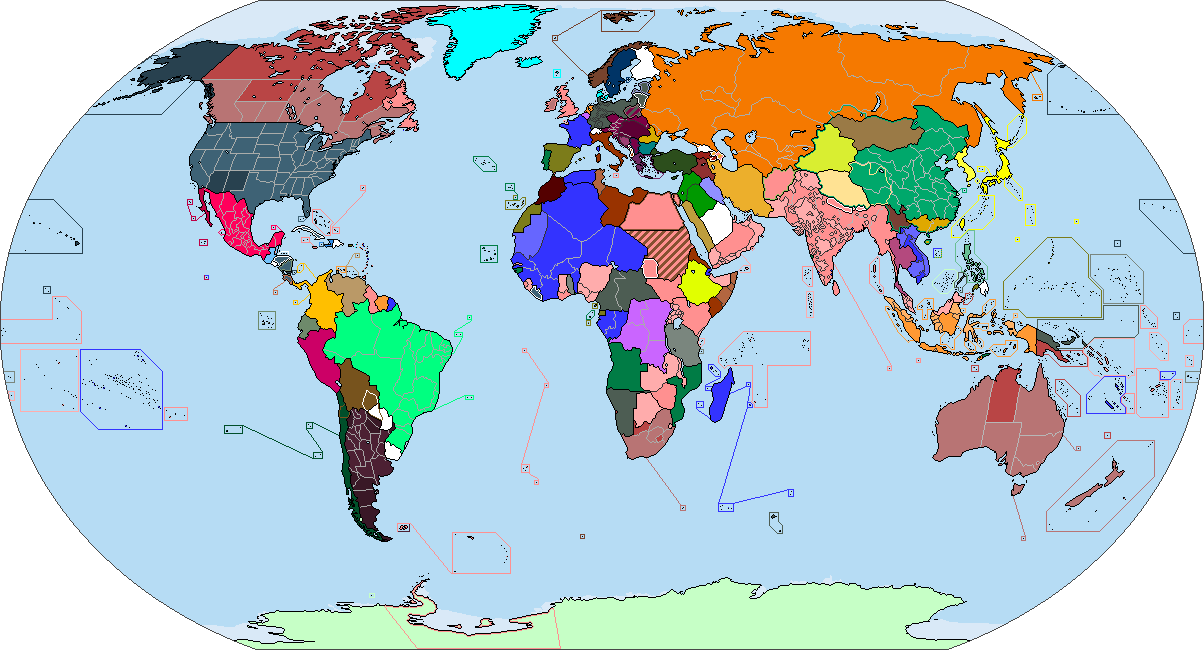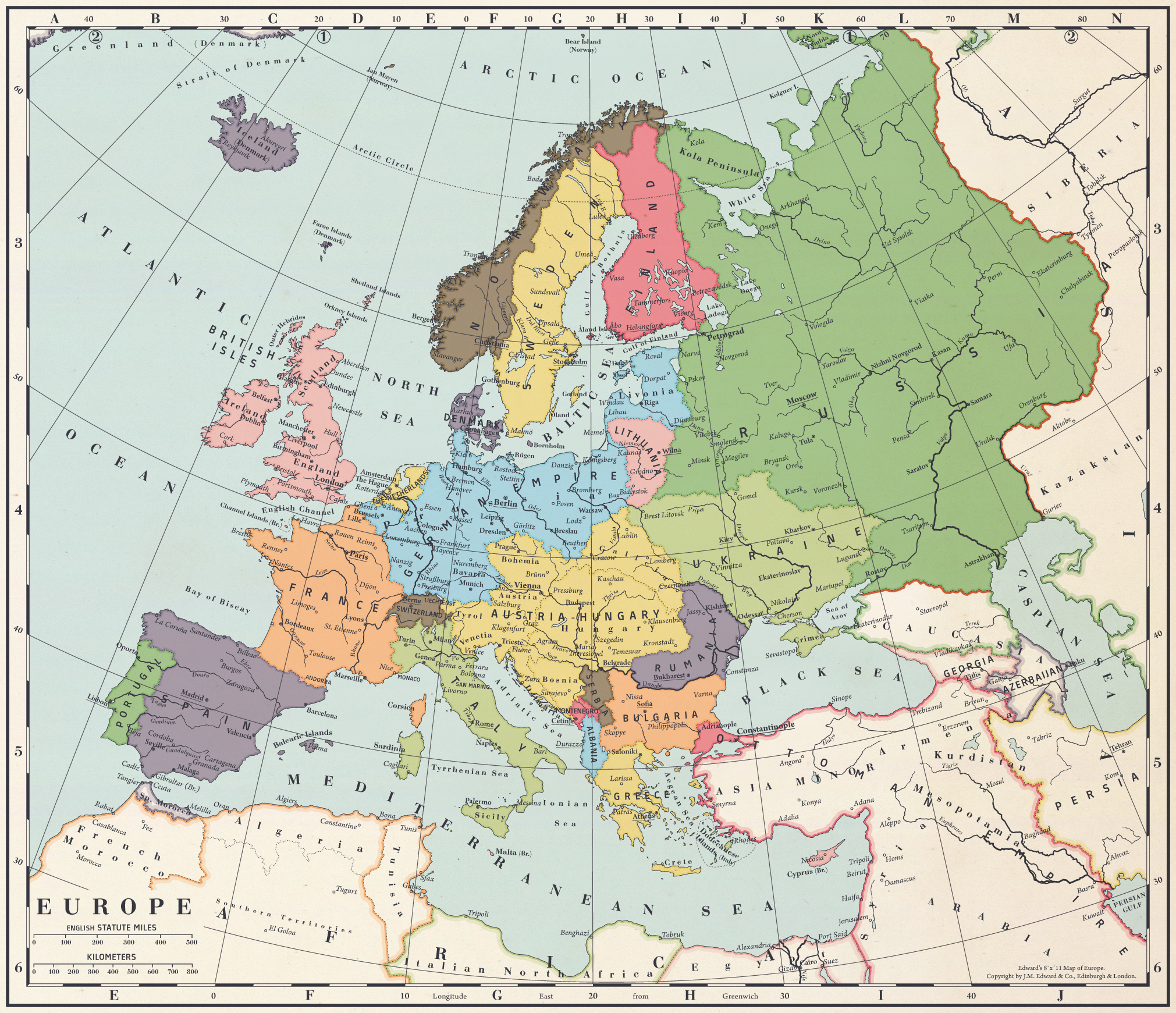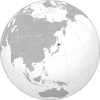Known as the
Amirate (for the title most commonly used by it's leaders;
Amir al-Mu'minin), or the
Caliphate (for having status of being the successor-state to the Prophet Muhammad's regime), the first Islamic empire was truly a sight to behold. With the rule of its
Amir stretching from the shores of Atlantic in the west to beyond even the Indus River in the east, this state was the largest the world had ever seen at the time, as well as one of the most influential.
Founded in the 24 AR (after revelation), the early years of the first Islamic State was troubled; for after the Prophet's untimely death on the field of battle against a series of claimants to the prophethood, the succession to the leadership of the
ummah (Islamic community) was thrown into disarray. Muhammad's eldest child and only son, Abd-Allah, was only 18 years of age at the time and was generally regarded as having the greatest claim to his father's title (Commander of the Faithful), however, he lacked the necessary allies in the capital of Medina to truly stake his claim. Moreover, the late Prophet himself did not provide for any mechanism for how to select a successor, nor any indication on whom that successor should have been (this including his own son), and in lieu of Abd-Allah's presence in Medina, the influential members of the new faith assembled to swear oaths of allegiance to the more aged and acceptable Abu Bakr; the father-in-law to Muhammad through his daughter, Aisha. Shortly thereafter, tradition tells, the Prophet's son visited the new
Amir al-Mu'minin to swear allegiance also.
No matter what school of Islam modern believers lie on, Abu Bakr is traditionally held in high regard for his victory over the rebellious Arab tribes which sought to overthrow the nascent Islamic Empire, as well as his compilation of the teachings of God and sayings of Muhammad into a single tome; the Quran. As such, he is widely regarded as the
Rashidun Caliph (rightfully guided successor to the Prophet), and is considered one of the three great early leaders of the faith (held just bellow Muhammad and his son). However, for all the good Abu Bakr's had provided the members of the faith, his leadership over the
ummah drastically short; the second
Amir having served for merely 20 months before being cut down by a sickness in the year 27 AR. Noting the lack of a mechanism for succession prior to Muhammad's death, he provided in his will a committee composed of twenty-three of his closest companions and advisers to select amongst themselves who would become the new
Amir.
The selection would take place in Medina (where all subsequent
Amirs would be chosen in the coming centuries), and the assembled committee was divided. Several of the committees members strongly clambered for the selection of the now eldest surviving companion to the Prophet, Umar, who had led several of Abu Bakr's campaigns to pacify the Arab Tribes; however, a smaller yet more vocal group called for the succession of Muhammad's own son; the twenty-one year old Abd-Allah. For a while, the electors had been deadlocked, and although Umar had the plurality, it was hardly enough for the committee to readily lift him to the title he had coveted since his Prophet's death, and soon the tide turned the other way. Ali, the cousin and son-in-law to Muhammad, who had also been cheered as a potential successor to Abu Bakr, ultimately put his support behind Abd-Allah after several ballots in which he and his supporters were indecisive; the remaining members of committee relenting to Umar's claims to swear and oath of allegiance to their new
Amir al-Mu'minin, however resentful some may have been.
What followed was the greatest expansion of any empire ever seen. Under the second
Amir, the Islamic Empire began to sweep across much of the ancient world; Abd-Allah and his numerous great generals (among them Umar, Khalid ibn Walid, and 'Amr ibn al-'As) spreading their faith and language far-and-wide as their forces defeated all other empires that stood in their wake. It was known as the
'majid al-fatah (glorious conquest), and among the great victories that occured in this era were those of the Persian Conquests (23 AR to 42 AR), the Egyptian Conquests (29 AR to 31 AR), and the Conquest of Anatolia (59 AR to 65 AR) which culminated in the Fall of Constantinople and practical destruction of the Roman Empire. Whilst the conquests wouldn't stop for another century-or-so, the era defined as the
'majid al-fatah would end on the death of Abd-Allah in 83 AR when the
Amir was seventy-seven years of age, his leadership of the
ummah stretching near fifty-six years over which he survived numerous battles and assassination attempts all whilst expanding the influence of Islam throughout much of the west.
In the year of his death, Abd-Allah wrote in his will that a committee composed of fifty-five imams (known today as the Imamah) most knowledgeable in the Quran would select a new
Amir al-Mu'minin from the
Ahl al-Bayt; the People of the House (descendants of the Prophet Muhammad). The imams, collected again in Medina (although the seat of the
Amir had by now shifted to Jerusalem) selected the Abd-Allah's thirty-nine year old eldest son, Ibrahim, to ascend to the position his father had held for so long. Though he would ultimately be felled in battle in the year 97 AR during a campaign against rebellious Greeks, the precedent set in his ascension would ultimately pass down to all those that followed in Ibrahim's wake; with his own son (Hasan) being selected by the Imamah. Soon, the post became
de facto hereditary, with the leadership of the Amirate being passed from father-to-son or brother-to-brother.
In 152 AR, on the death of
Amir Abdullah, the Islamic Empire had reached its maximum height that it would ever attain. Having subdued many rebellions in the east during the early years of his rule, he would later move to the far west where he oversaw the conquests of Northern Gaul and Italy, destroying the last remaining remnants of the Roman Empire whilst spreading his writ all the way up to the river Rhine. Religious tolerance was a vital necessity for Abdullah during the later years of his leadership over the
ummah; the
Amir gradually allowing for greater-and-greater relaxations on the jizya in his last decade before abolishing it almost completely for the Christians and Jews in Europe (despite the disagreement from many prominent imams).
It was this that stopped the Islamic Empire from collapsing into complete chaos upon his death, however, in the decades that followed, religious tensions (mostly stemming from political disputes) would explode on the frontiers of the Amirate, and influence of the
Amir dwindling over time as local rulers began to assert their own power and independence. In 196 AR, the First Fitna began; a decade long conflict that tore apart much of the Islamic Empire over a squabble regarding the outcome of a Imamah election. By the fourth century, the writ of the
Amirs had dwindled to the Levant and the Arabian Peninsula, and by the 7th century, its independence was destroyed completely by Turkish invaders. However, the memory of the Amirate lived on; in language, culture, and most importantly, faith. In time, Islam, the religion first espoused by the Prophet Muhummad, would became the largest and most widespread religion in history, all a result of the first Islamic Empire; the Amirate.



